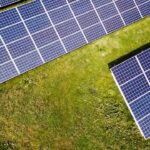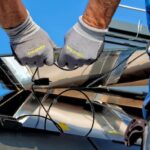Chinese Inverter Manufacturers Face Criticism in Australia, Goodwe Responds Exclusively
Recent developments in Australia have shed light on a perceived “trap” by the opposition against the country’s rooftop solar photovoltaic (PV) generation, targeting PV products manufactured in China. This debate has been initiated by James Paterson, spokesperson for internal affairs and cyber security in the Australian opposition, who is raising concerns about security risks associated with smart inverters used in rooftop solar installations.
In response to these concerns, the influential green energy transition media outlet “Renew Economy” expressed a viewpoint that the opposition’s actions appear creative but desperate in their attempts to undermine Australia’s renewable energy commitments. They assert that the opposition’s claims of network security risks impacting 60% of rooftop solar inverters promoted by the federal government lack concrete evidence.
James Paterson has been leading this charge against renewable energy, while paradoxically advocating for nuclear power. Notably, Paterson’s dual roles include being a former research fellow at a lobbying group funded by fossil fuel companies. He argues that the proliferation of smart inverters, including those from China, poses potential risks to the national power grid.
As the controversy deepens, Chinese inverter manufacturer Goodwe has exclusively responded to the issue. In an email sent to “Renew Economy,” Goodwe CEO and Founder Huang Min emphasized the company’s unwavering commitment to data and network security. Huang highlighted that transparency and compliance are core values of the company, and they adhere to all applicable laws and regulations in China and other countries where they distribute their products. He stressed that Goodwe operates independently and guarantees the highest standards of data security in their smart inverters.
However, experts have challenged Paterson’s claims, indicating that security vulnerabilities do not solely depend on the manufacturing country. Network security risks stem from the inherent connectivity of smart inverters to the internet, making them susceptible to cyber attacks regardless of origin. Additionally, Paterson’s concerns about security risks with Chinese inverters might lack sufficient grounding, as these devices are usually part of virtual power plants controlled by third parties with specialized cybersecurity knowledge.
Grace Young, an expert quoted by Paterson, argued that while policies and protective measures against various threats should be considered, they should not impede the progress of renewable energy. She pointed out that even if all Chinese inverters were banned in Australia, similar security risks would still persist.
In conclusion, the debate surrounding Chinese-made inverters and their impact on Australia’s energy security underscores the complexity of cybersecurity in the renewable energy landscape. As the Australian government continues to navigate the renewable energy transition, balancing security concerns with the advancement of green energy technologies remains a critical challenge.



